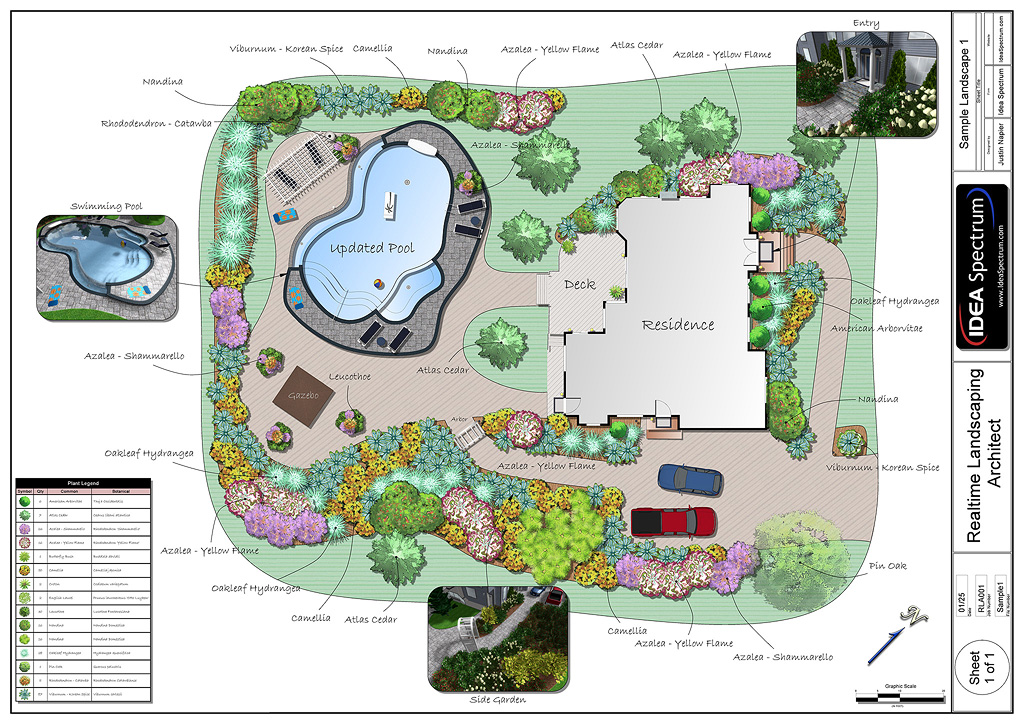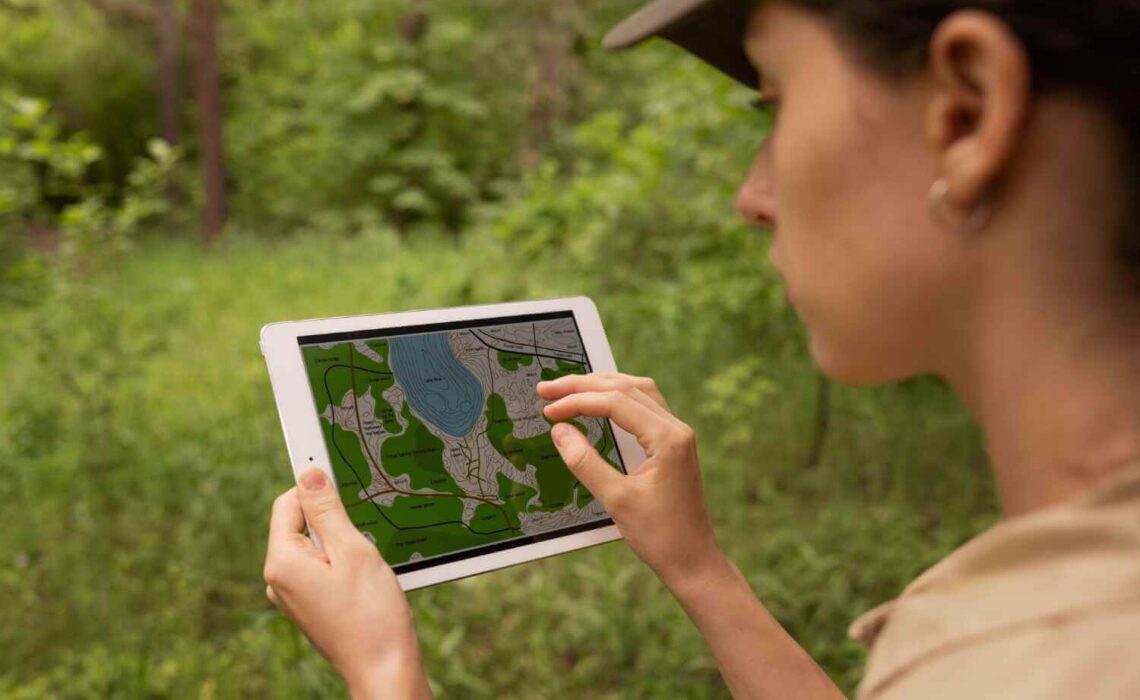Land management is a crucial aspect of maintaining the environment and preserving natural resources. From large-scale commercial properties to small residential yards, the proper management of land can have a significant impact on the overall health of our planet.
In recent years, the field of land management has seen a remarkable advancement in technology, particularly in the form of groundscaping software. This groundbreaking software offers a comprehensive solution for landscape architects, property managers, and homeowners alike, enabling them to efficiently and effectively manage their land.
From tracking irrigation schedules to analyzing soil health, these software programs provide an array of tools to simplify the complex process of land management. However, with an abundance of options in the market, navigating the world of groundscaping software can be overwhelming.
Here, we will explore the benefits and features of land management software, as well as provide valuable insights on how to choose the right one for your specific needs. Join us as we dive into the world of groundbreaking groundscaping and uncover the key to effective land management.
1. Streamline processes with efficient software.
Table of Contents
In today’s fast-paced business environment, efficiency is key to staying competitive. Streamlining processes can help organizations save time, reduce errors, and increase productivity. One effective way to achieve this is by leveraging efficient software solutions.
With the right tools in place, businesses can automate repetitive tasks, centralize data, and improve collaboration among team members. Whether it’s project management, inventory tracking, or customer relationship management, implementing efficient software can revolutionize the way organizations operate.
By optimizing workflows and eliminating manual inefficiencies, businesses can focus on strategic initiatives and drive growth. Therefore, investing in reliable, user-friendly software is an essential step for organizations navigating the dynamic landscape of land management.
2. Optimize land management strategies.
To optimize land management strategies, it is crucial for organizations to leverage cutting-edge software solutions tailored specifically for this purpose. With the ever-increasing complexity of land management tasks, such as resource allocation, zoning regulations, and environmental sustainability, organizations need robust tools to simplify and streamline these processes.
The Professional landscaping software management offers a comprehensive suite of features that enable efficient data management, real-time monitoring, and analysis of land-related activities. By centralizing information and automating routine tasks, professionals in the land management field can make informed decisions, improve resource utilization, and ensure compliance with regulatory requirements.
Additionally, these software solutions provide enhanced collaboration capabilities, allowing teams to work seamlessly across departments and locations. By embracing the power of land management software, organizations can optimize their strategies and achieve sustainable and successful outcomes in an ever-evolving industry.
3. Stay organized with centralized data.
One of the key benefits of implementing land management software is the ability to stay organized with centralized data. With the vast amount of information involved in land management, it can be challenging to keep track of it all without a centralized system in place.
By using land management software, professionals can store and access all relevant data in one secure location. This includes property information, lease agreements, maintenance records, and environmental assessments, among other key data points. With this centralized approach, users can easily search, update, and analyze data, ensuring that critical information is always at their fingertips.

This not only improves efficiency but also enhances decision-making capabilities, as professionals can quickly retrieve accurate and up-to-date information to inform their strategies and actions. By harnessing the power of centralized data, land management software becomes an invaluable tool for organizations navigating the complex world of land management.
4. Utilize powerful analytics and reporting.
One of the most powerful features of modern land management software is its ability to utilize powerful analytics and reporting capabilities. With the vast amount of data collected and stored within the system, professionals can gain valuable insights into their land management practices.
By analyzing trends, patterns, and performance indicators, users can identify areas of improvement, track key metrics, and make informed decisions to optimize their processes. The reporting functionality allows for the generation of customizable reports, offering a comprehensive overview of various aspects such as land usage, resource allocation, financial performance, and environmental impact.
These analytics and reporting tools not only enable organizations to measure their success but also provide a foundation for strategic planning and continuous improvement. By harnessing the power of data-driven analytics and reporting, land management professionals can drive efficiency, sustainability, and long-term success in their operations.
5. Enhance client satisfaction and retention.
In addition to optimizing land management practices, implementing a robust land management software solution can significantly enhance client satisfaction and retention. By streamlining operations, improving communication, and providing a seamless customer experience, professionals can cultivate stronger relationships with their clients.
The software’s integrated customer relationship management (CRM) features allow for efficient tracking of client interactions, preferences, and requirements. This enables personalized service delivery, timely responses to inquiries, and proactive identification of potential issues. Furthermore, with features like automated reminders and notifications, clients can stay informed about important milestones, such as scheduled maintenance or project updates.
By consistently meeting and exceeding client expectations, organizations can not only foster loyalty but also leverage positive word-of-mouth referrals, further enhancing their reputation in the industry.
Groundbreaking Groundscaping emphasizes not only the importance of efficient land management but also harnessing technology to enhance client satisfaction and retention.
Overall, the world of land management software is constantly evolving, with new and innovative solutions being developed to streamline the process of groundskeeping. With the right tools and technology, land management professionals can save time, reduce costs, and improve the overall quality of their work.
It is important for professionals in this field to stay informed and adaptable in order to effectively navigate the ever-changing landscape of groundscaping. By utilizing the latest software and staying up-to-date on industry trends, land management can become more efficient and effective than ever before.
- How To Create A Safe And Comfortable Home Environment For In-Home Care In Boca Raton? - July 16, 2024
- 10 Trendy Black Nail Ideas To Elevate Your Nail Game - May 6, 2024
- Getting A Free Divorce In Virginia? Here’s What To Expect - April 24, 2024





No Comments